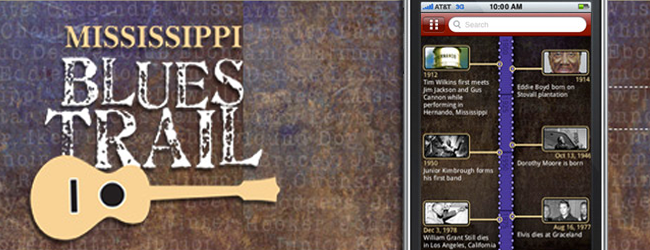 (DUNCAN, MISS.) – Duncan, Miss. will soon unveil a new marker on the Mississippi Blues Trail, honoring the city’s blues legends. Eddie C. Campbell, renowned blues guitarist and singer, is one of several artists included on the marker. The unveiling will be held at 11 a.m., Friday, April 10, at East Main and Park Street in Duncan. Campbell will perform at the unveiling.
(DUNCAN, MISS.) – Duncan, Miss. will soon unveil a new marker on the Mississippi Blues Trail, honoring the city’s blues legends. Eddie C. Campbell, renowned blues guitarist and singer, is one of several artists included on the marker. The unveiling will be held at 11 a.m., Friday, April 10, at East Main and Park Street in Duncan. Campbell will perform at the unveiling.
“We are very excited to be able to honor these special people and their connection to Duncan,” said Kelli Carr, director of Cleveland Tourism. “Bolivar County has such a rich musical heritage, and it not only appeals to the ever-growing tourist sector traveling the Blues Trail, but also serves as a wonderful education component to residents who might not have known these connections. It brings a certain amount of civic pride. We are very excited that Eddie Campbell can come home to Duncan and attend his marker unveiling. It makes it quite special when those we honor can see the impact they have made on music history.”
The Mississippi Blues Trail’s 185th marker dedication ceremony will mark both a homecoming and a comeback for Campbell, who was born in Duncan in 1939. Campbell left Mississippi as a child and was raised in Chicago, where he joined a legendary circle of musicians, including fellow Mississippi transplants Otis Rush and Magic Sam, who created the famed West Side sound.
Campbell, who toured and recorded widely, lived in Europe in the 1980s and appeared in a German production of William Faulkner’s “Requiem for a Nun.” On his last tour to Germany in 2013 he suffered a stroke, and though he still battles its effects, he has been playing again at his home in Chicago. With support from the Mississippi Blues Foundation he will be leaving Chicago for the first time since his stroke to perform at the marker dedication and on April 11 at the Juke Joint Festival in Clarksdale.
Campbell shares connections with other Duncan and Clarksdale area musicians, notably blues icon Jimmy Reed, who lived on the nearby McMurchy plantation before moving to Chicago, and Robert “Bilbo” Walker, a familiar figure in the juke joints around Clarksdale, Bobo, Alligator and Duncan, who knew Campbell in Chicago in the 1960s. Duncan native Ernest Lane, best known for his work with Ike Turner’s Kings of Rhythm, was also recruited to play piano on one of Campbell’s albums.
Others honored on the Duncan marker are local favorite Willie “Rip” Butler, a longtime member of the Wesley Jefferson Band who also worked with Robert Walker; pianist Willie Love, who made historic recordings for the Trumpet label in Jackson in the 1950s; Percell Perkins, who sang the Five Blind Boys of Mississippi and other gospel groups; young Clarksdale bluesman Anthony “Big A” Sherrod, whose birth, as he tells it, took place on a Greyhound bus traveling through Duncan; and Rosetta Patton Brown, who was not a performer who but who was known to many visitors and aficionados as the daughter of Charley Patton, the man often called “the founder of the Delta Blues.”
“As the Mississippi Blues Trail continues to grow, the story of how our state produced the foundation of modern music is told in more detail,” said Malcolm White, director of Visit Mississippi. “The markers tell of musical legends, their influences, and the history of area that gave birth to the blues. The Blues Trail is one of the best ways to experience the richness of Mississippi and we are so pleased to add Duncan to the list of markers and celebrate Eddie Campbell in his hometown.”

